Published
- 03:00 am

Revolut strives to create a radically better banking experience for individuals and businesses alike.
Revolut Connect is the easiest and fastest way to connect your Revolut for Business account to the tools and apps you use everyday.
And since your Business account can now ‘talk’ to apps like your accounting software, budget planner or even Slack, you can kick back and let the tech take care of those boring admin tasks, while you focus 100% of your time on the things that matter most to you and your business.
One of the things that banks have traditionally been famous for is their inability to open up to the outside world. In the past this could have been justified by the need to keep gold coins in thick-walled vaults, but this attitude hasn't evolved to the way businesses work today.
Modern businesses live and operate online, using a wide variety of apps and tools to streamline operations, best serve customers and process payments instantly - with as few fees as possible.
Related News
- 03:00 am

Big banks are ramping up investment in digital services, as RBS announces a £ 2.5 billion investment and Lloyd’s announces an investment of £ 3 billion.
However, with TSB still reeling from its IT meltdown, banks must understand the complexities of their existing infrastructure, before they can transition to a more modern IT system, warns Nick Hammond, Lead Advisor for Financial Services at World Wide Technology.
Nick comments: “The approach to ‘going digital’ requires a step back to understand the sheer complexity of many modern banking IT systems, and the difficulty involved in changing them.
“Existing IT systems at older banks have grown into outdated, legacy infrastructures over years of successive development and acquisitions, with a convoluted web of interdependencies. Often the people who first set up these infrastructures have moved on from the company, leaving their successors with a complex, opaque network of applications which depend on each other in unseen ways, with no complete picture of how the system works.
“Before any change project can be implemented, banks must take the time to map out the existing systems and understand the interdependencies within the applications. To be able to adopt technology in a future-proof way, financial services firms need a bespoke strategy that accounts for every connection within the system before implementing change policies accordingly.”
Related News
- 01:00 am
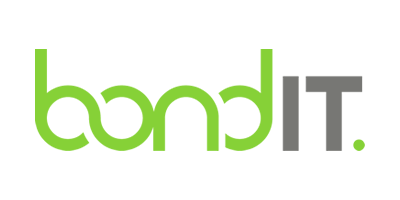
BondIT today announced that leading fixed income house, FIIG Securities, has signed an agreement to use its bond portfolio solution for relationship managers.
FIIG Securities is Australia's leading fixed income house with over AUD 10 billion under investment. With offices in Sydney, Melbourne, Brisbane, Perth and Malta, FIIG's team of over 140 employees provides service and support to over 6,000 clients across Australia.
To support the company's substantial growth in the fixed income market, FIIG Securities will adopt BondIT across all front office users to bring efficiency to daily activities including new portfolio construction, investment idea generation, relative value analysis, portfolio monitoring and portfolio optimisation. BondIT will integrate with FIIG Securities' core investment management platform, SimCorp Dimension, providing users with seamless access to all the information needed to provide an enhanced service to FIIG Securities' growing client base.
Etai Ravid, CEO and founder, BondIT, comments: "Over the past year we've built a great working relationship with FIIG and are delighted with their decision to deploy our leading fixed income technology platform to support the growth of their business. FIIG recognises how new technologies are reshaping the investment industry, enabling businesses to scale and ultimately enhancing customer service. We are excited to partner with the team at FIIG to help them realise their growth ambitions."
John Prickett, Chief Operating Officer, FIIG Securities added: "Demand for fixed income, and in particular corporate bonds, is on the rise with more and more investors realising the benefits of corporate bonds as part of a diversified portfolio. The BondIT software will further enhance our offering, pairing the knowledge of our expert team with the latest technology to identify more fixed income opportunities for our clients and help them maximise their investments."
Related News

Sophia Brooke
SoftwareMill at Project Manager
Hundreds of millions of mobile devices will have augmented reality (AR) ca see more
- 02:00 am

Pay360 by Capita today launches Optimize, a state-of-the-art fraud and risk management solution to help financial services, retail and gaming organisations combat fraud, streamline customer authentication decisions and support revenue growth.
Designed to address four key customer needs, Optimize will increase customer conversion at the checkout with more accurate, automated decision-making and help organisations meet their compliance and regulatory requirements including Know Your Customer (KYC) and Anti-Money Laundering (AML).
The software will enable users to create and manage fraud strategies in real-time whilst freeing up valuable people resource and enable organisations to make faster, more accurate decisions whilst identifying previously undiscoverable threats and relationships
“Leveraging Capita’s expertise as one of the UK’s largest software companies, Optimize provides a further example of how we are adding unique value to our partners by incorporating the solution into their existing portfolios, as well as adding real business value to our customers”, explains Chris Baker, executive officer, Capita Software.
Stephen Ferry, managing director, Pay360, adds “Optimize is flexible enough to adjust in real-time to increasingly sophisticated forms of online fraud, whilst identifying genuine consumer behaviour. With access to external data sources and more visual forms of data analysis the software will allow users to make more accurate, informed and faster decisions.
“Through automation and self-learning, the platform reduces the number of human interactions and touch points needed to perform a fraud investigation, streamlining the whole fraud and risk management process to create a solution fit for today’s digital landscape.”
Related News
- 03:00 am
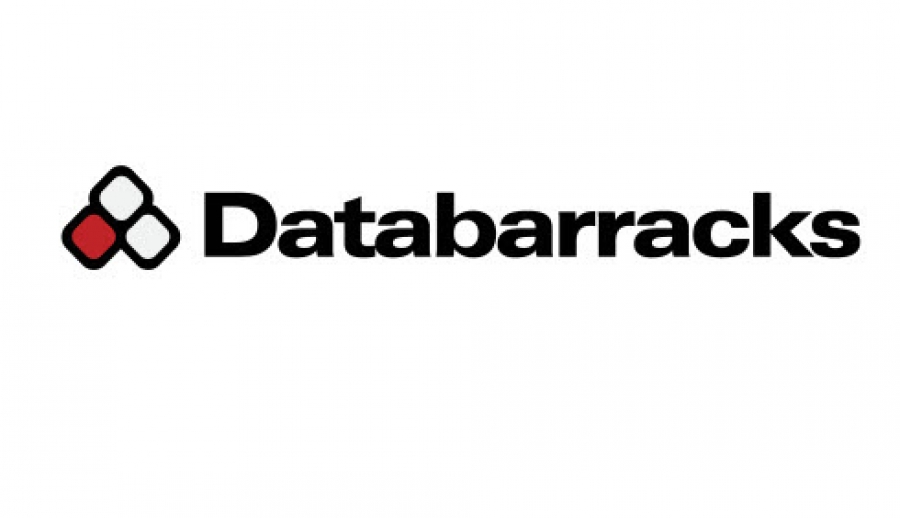
Six weeks since the TSB crisis and new research from business continuity and disaster recovery provider, Databarracks, has revealed that 85 per cent of organisations say they would struggle to survive if there was a loss of mission critical IT systems for longer than a month.
This data was taken as part of its Data Health Check survey, which investigates views and opinions from over 400 IT decision-makers on a range of subjects relating to IT.
The findings illustrate the reliance organisations have on IT systems. Delivered effectively, technology streamlines processes, improves productivity and delivers cost savings across a business, but when systems are unavailable, major problems can ensue. The TSB banking crisis was a testament to this, with an estimated 1.9 million customers unable to access their accounts following a poorly coordinated IT upgrade, provoking much scrutiny and backlash for the bank.
According to Groucutt, as businesses increasingly digitalise their operations, the fallout from any IT related downtime becomes much more impactful:
Groucutt adds: “The findings taken from the Data Health Check reinforces how reliant we are on technology. For many organisations, there are now very few business processes that do not depend on a computer to deliver them. In general, automated processes are more dependable but when systems do fail, there are less manual processes to revert to. Without IT, businesses simply can’t survive.
“Digital Transformation requires some new tactics to maintain resilience but the principles of business continuity remain the same. When we design our mitigation solutions, we need to consider diversification, replication, stand-by and post-incident acquisition. We apply these principles to all aspects of the business, from the work environment, the people, our suppliers and our technology.”
Groucutt states regardless of whether a process is digital or manual, certain fundamentals must always be present in your continuity planning: “Designing solutions for how an organisation is going to continue operating following a disruption should be based on the business continuity requirements identified in your business impact analysis (BIA), and the outcomes from the risk assessment. Critically, any business continuity solution should include these fundamental elements:
Diversification – Firstly, having the ability to run different activities and functions across different locations, means that if a problem or a disruption does occur at your current location, you can move to an alternative site and pick up activities with minimum impact to the business.
Replication – Another facet of diversification might be duplicating resources. This means that if there is a disruption, activities can be mirrored elsewhere enabling the business to recover quicker.
Stand-by – If, for example, an organisation has a ‘recovery time objective’ (RTO) that provides a longer response time for an incident, an alternative solution might be to have a standby location available, which enables you to become operational in the allotted RTO.
Finally, Post-incident acquisition means that if your agreed RTO’s are measured in days or weeks, a firm can actually source the resources needed to fix it, in the post-disruption stage. To be effective though, it’s important a firm uses a pre-defined and prioritised list when acquiring these resources, whether it be specific skills, equipment, facilities or supplies.
Groucutt concludes: “For organisations unsure about how best to approach improving their resilience, information provided by the Business Continuity Institute (BCI) outlines not only the fundamentals needed for designing a plan but also implementation and evaluation.”
Related News
- 02:00 am
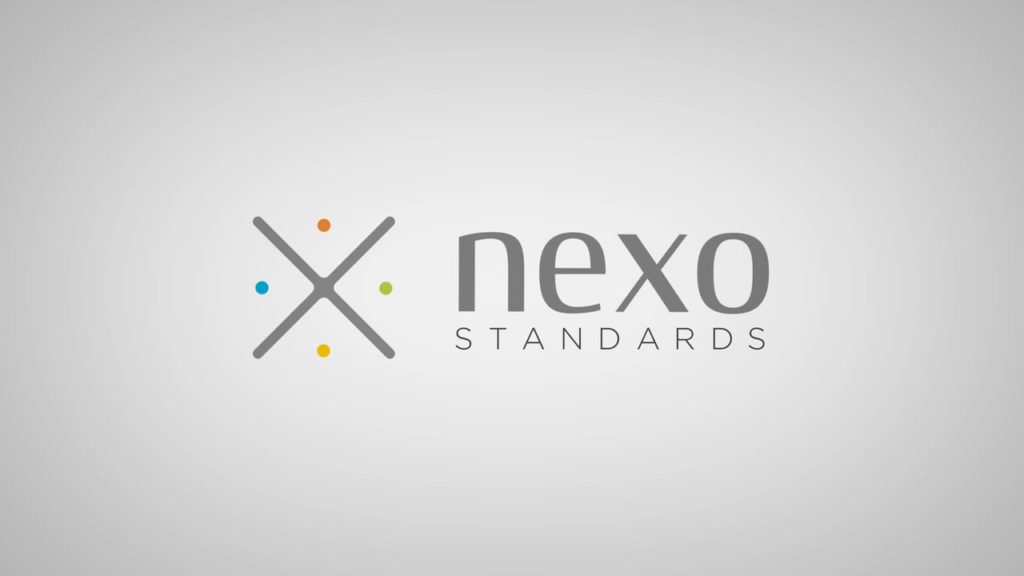
nexo standards, the international association dedicated to enabling fast, interoperable and borderless payments acceptance, today announces that ID TECH has joined its membership.
Founded in 1985, ID TECH is a leading authority on the design and manufacture of point of sale (POS) peripherals and payment terminals, specialising in secure payment solutions for the unattended, mobile and tier two retail sectors.
As an Associate Member, ID TECH will contribute valuable expertise in both POS devices and on-board payment applications, to support the ongoing development of nexo’s messaging protocols and implementation specifications.
nexo standards enables fast, interoperable and borderless card payments by standardising the exchange of payment acceptance data between merchants, acquirers, payment service providers and other payment stakeholders. nexo’s messaging protocols and specifications adhere to ISO20022 standards, are universally applicable and freely available globally.
Eric Lecesne, VP of EMV® Strategy, ID TECH, comments: “ID TECH fully supports nexo’s mission to harmonise payment acceptance by eradicating fragmentation in the market and creating a unified global card payment acceptance ecosystem through the use of common, open standards. We are focused on making card acceptance standardisation a reality in the unattended payments space; stakeholders in this sector operate in multiple geographies and are challenged by a lack of consistency and interoperability in their POS services. By using nexo standards it is possible to create a payment application that delivers a universally consistent user experience, tailored to the specificities of a particular country.”
Arnaud Crouzet, General Secretary, nexo standards, adds: “Success in our mission to harmonise card payment acceptance globally relies on our engagement with key payments stakeholders like ID TECH. The company has a well-defined, expert focus on the unattended space which perfectly complements our development work to date. We are delighted to welcome them as a nexo member and to work together to establish a standardised and universally beneficial way to apply ISO20022 to the world of card payment acceptance.”
Related News
- 04:00 am
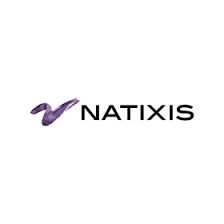
As part of its ongoing efforts to offer next-
generation trade finance solutions to its clients, Natixis has announced that it has joined
the trade finance network Marco Polo. Marco Polo is one of the fastest growing trade
finance business networks and is a joint undertaking with enterprise software firm R3,
trade finance technology firm TradeIX and a network of the world’s largest financial
institutions.
Natixis is now part of a growing number of leading banks such as BNP Paribas, Commerzbank,
ING, Standard Chartered Bank, Bangkok Bank, SMBC, DNB and OP Financial Group that are
part of the Marco Polo initiative to provide a trade and supply chain finance platform built on an
interoperable business network powered by open Application Programming Interfaces (APIs) and
blockchain technology.
“We are delighted to become a member of the Marco Polo network and offer trade and supply
chain finance solutions leveraging blockchain technology. This initiative belongs to Natixis’
continuous transformation plan, which is putting digital technology and innovation at the core of
its strategy to improve the experience of its clients.” said Anne-Cécile Delas, Global Head of
Global Transaction Banking at Natixis. "We look forward to active collaboration with the other
key members of the initiative and believe that there will be significant opportunity to synergistically
drive the adoption of blockchain and new trade solutions in the trade finance market."
Based on R3’s Corda blockchain technology, the infrastructure provided by Marco Polo is
focusing on open account trade finance orchestrations with data matching, designed to be
integrated in new and existing solutions and other trade networks. The principal focus of the Marco
Polo initiative is adding new bank members, offering trade finance solutions to their corporate
clients and the opportunity to distribute trade assets and data with other members.
“Blockchain’s potential to transform the trade finance ecosystem has always been clear. With the
Marco Polo network on our Corda platform we are moving forward from potential to reality. We
are pleased to welcome Natixis on board,” said David E. Rutter, CEO of R3.
“We are very pleased that Natixis has joined the Marco Polo network. This should be a signal that
there is broad agreement in this sector that crosses some significant strategic and organizational
boundaries about collaboration, leveraging new technologies and to provide standards and best
practices in the traditionally fragmented regional trade finance space," said Daniel Cotti, CFO
and Bank Partner Relationships at TradeIX.
Related News
- 07:00 am
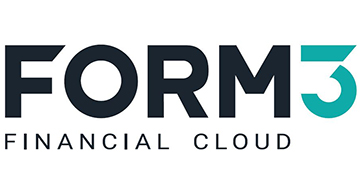
Form3, the cloud payments platform has joined forces with Mambu, the leading SaaS banking engine, to deliver a cloud-native and pre-integrated payments processing service. In an industry first, Form3 will provide access to real-time payments processing in the UK and Europe, integrated into Mambu.
The partnership will help lower the barriers to entry for new players and help established institutions build for the future by simplifying what has, until now, always been a highly complex integration process. Financial institutions will benefit from a cloud-native integrated best-of-services offering that gives them the agility to adapt to market changes and consumer demands simply, securely and efficiently.
“The growing acceptance of cloud services combined with higher customer expectations means we are in an environment where institutions are searching for quick and agile solutions,” says Michael Mueller, CEO of Form3. “We have individually partnered with clients looking to transform their operations through cloud-based services and our approaches to integration and speed of services are perfectly aligned. This made the partnership a natural fit.”
“Customers see real-time payment processing as a basic service and a necessity for any institution hoping to remain relevant in an increasingly crowded market. Together with Mambu we offer clients significantly reduced time to value and market,” added Mueller.
Commenting on the partnership, Ben Goldin, CTO of Mambu said: “No single vendor can be the best at all components of a banking architecture which is why we partner with the best service providers to offer clients simplicity, ease of integration and speed.”
“We have seen both established players and new entrants encounter difficulties building and adapting to the constantly evolving environment. In this market, which is hungry for innovative solutions, our partnership with Form3 is a game-changer. Together, our services give clients a powerful tool with which to both rapidly deliver and efficiently manage business change, reduce risk and future-proof their business,” says Goldin.
Related News
- 04:00 am

3rd Global Asset Allocation Focus 2018 (hereinafter as GAAF2018) was solemnly opened on May 17th-18th in Shanghai, China. GAAF2018 was organized by CDMC Finance Research Institute (hereinafter as CFRI) and CDMC Group, with the support of Association of International Wealth Management (AIWM), Beijing Wealth Management Industry Association, Alternative Investment Management Association, Association of Family Office in Asia, Association of Private Bankers in Greater China Region, Shanghai Advanced Institute of Finance (SAIF), Shanghai JiaoTong University SAIF Club.
It gathered senior executives from domestic and foreign private banking, wealth management, asset management, FOF, family office, trust, fund, insurance, law firm, service and technology providers to discuss core topics, such as wealth management, independent wealth, asset management, private banking, family offices, and FOF.
The summit gathered 500 participants and 32 speakers with multiple meeting forms, including global asset allocation main forums, roundtable talks, smart investment forums& the Pre-A round financing conference of Sinolink YongFu, global asset allocation awards ceremony, media interviews, and family office training to fully analyze assets allocation.
Strong conference line-up, full industry chain, accurate coverage
According to China Private Wealth Report 2017, the ranks of China’s high-net-worth individuals (HNWIs) reached 1.58 million in 2016, who have more than RMB 10 million (U.S. $1.5 million) in investible assets. The country’s total private wealth market now totals RMB 165 trillion (U.S. $24.8 trillion) in investible assets. With the balanced allocation of wealth, policy guidance, cutting-edge technology, investment strategy and industry development cycle have an important impact on China's HNWIs and financial institutions.
In this context, the summit invited Zhu Haibin, Chief Economist of JP Morgan China, Shang Chuang, CFO of Noah Wealth, Andrew Lau, Vice Chairman of Association of Private Bankers in Greater China Region, Sermon Kwan, Senior Advisor, Bank of Singapore, Byron Wong, Executive Director of Yunfeng Financial Group, Vince Zhang, President of Phoenix Finance, Wang Yunpeng, Senior Vice President of JianRong Capital, Ethan Wang, Head of Investment Strategy, Wealth Management of China, Standard Chartered Bank, Li Dan, Management Partner, Prosperity Investment, Li Qiang, Managing Director of CICC Wealth Management, Zhang Xudong, General Manager Assistant of China Merchants Bank Shanghai Private Banking, Xiao Wei, Vice President of GeShang Wealth, Eva Law, Chairman of Asian Family Office Association, Callum Liang, Partner of Unity-Group, Dong Haizhou, Deputy Chief Investment Officer of Hang Tang Wealth Family Office, Robert Rubenstein, Chairman of TBLI GROUP.
They discussed hot topics, such as “2018 global economic outlook and asset allocation strategy, China's wealth management market trend forecast, private banking experience sharing, financial technology, smart investment, asset preservation, FOF, family office and family trust, non-performing assets”, etc. It built an excellent platform for communicating, learning and networking.
Various meeting forms
The conference had a variety of conference formats, global asset allocation main forums, roundtable talks, smart investment forums, and the Pre-A round financing conference of Sinolink YongFu, global asset allocation awards ceremony, media interviews, and family office training to fully analyze assets allocation.
In the roundtable talks, the conference specially invited Wu Fei, Professor of the Shanghai JiaoTong University Advanced Finance Institute, Zhu Haibin, Chief Economist of JP Morgan, Shang Chuang, CFO of Noah Wealth, Andrew Lau, Vice Chairman, Association of Private Bankers in Greater China Region, Sermon Kwan, Senior Advisor, Bank of Singapore, Li Qiang, Managing Director of CICC Wealth Management, Zhang Xudong, General Manager Assistant of China Merchants Bank Shanghai Private Banking, XiaoWei, Vice President of Geshang Wealth, Hua Weida, General Manager of Shanghai Private Banking of Everbright Bank, Li Weiqing, Member of the Standing Committee of China Banking Association Private Banking Professional Committee, Xiang Anda, Founding Partner of Momentum Holdings, Song Yajie, CEO of BU Fortune, Chen Sijie, Assistant President of Western Wealth, Li Xinchen, CEO of Yajiang Investment, He Wendi, Founder and Chief Executive Officer of E Agent. They discussed on the "2018-2020, Wealth Management Market Outlook, Hot Spots, Opportunities and Challenges", "Private Banking Development in the Future - Product Investment and Research, Service, Talent, Technology, Wealth Heritage, Customer Loyalty", "Diversified Allocation of Assets", “Wealth Management Market Transformation, Upgrade Wealth Management Service Ecosystem”, “Experience Sharing for Family Office Managers: Serving Family Members, Shareholders, Managing and Developing Family Businesses, Sharing Examples of Joint Ventures, Co-investment, and Cooperation with Other Families”, and actively interacted with guests. Senior members of the industry jointly explored the latest policies and trends in asset allocation and accompanied by wonderful analysis, the guests were greatly benefited all.
At the same time, “3rd Global Asset Allocation Summit·2018 Smart Investment Forum& the Pre-A Round Financing Conference of Sinolink YongFu" was held on May 17th. At the press conference, Sinolink Yongfu officially announced that he had obtained Pre-A round of financing from Xinjiang Sequoia Fund Management Co. Ltd.
Brand display and enterprise promotion
At this meeting, outstanding companies from home and abroad, such as Phoenix Financial, TianJi Wealth, Youzhao, CS Global Partners, Yunfeng Financial, and Vhall, conducted booth promotion. Many participants have stopped and communicated with exhibitors to promote cooperation.
Domestic and foreign media have reported on this conference. The media presented at the conference include: CCTV Securities, China Capital Watch, Yunzhang Finance, Futures Daily, Wealth Management Magazine, Interface, Tencent, 21st Century Business Herald, etc. The Organizing Committee actively invited industry medias to the scene and conducted an exclusive interview with outstanding companies in the industry to provide more brand exhibition and corporate publicity opportunities for participating companies and guests.
Global Asset Allocation Awards Ceremony
Global Asset Allocation Awards Ceremony, which honors enterprises and individuals who have made outstanding contributions to wealth management and asset management. We set up six awards categories, including “Banking”, “Wealth”, “Asset Management and Investment”, and “High-end Service”, “Family Wealth Inheritance” and "Individual".
The two-day 3rd Global Asset Allocation Summit 2018 (GAAF2018) has concluded successfully. Paris Zhang, secretary-general of CDMC Finance Research Institute (CFRI), on behalf of the organizers said that she would like to express her sincere gratitude to the chairman of summit, the speakers, sponsors, media representatives and participants for their active participation! Looking forward to seeing you next year!
China Decision Makers Consultancy(CDMC)Group was founded in 2004. CDMC Finance Research Institute (CFRI) is committed to the sustainable development of China and worlds' finance development through conducting research on difficulty points and hot issues. With a 8-year proven track record, CFRI is studying on payment, internet finance, FinTech, customer finance, supply chain finance, block chain, situational finance, global asset allocation, non-performance asset investment, ABS, real estate finance, derivatives, wealth management, asset management, etc.
Website: http://www.gaaf-annual.com
Contact Us: 173-1739-2107 (Mr. Shen)









